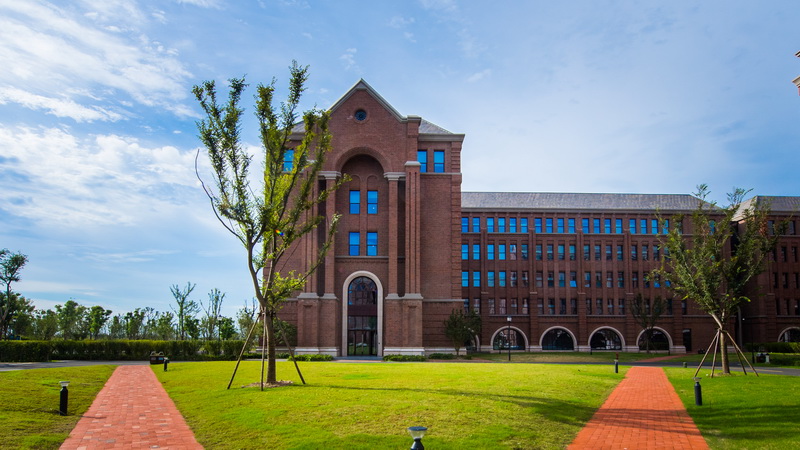Advanced Data Analysis
STAT 448

Course Code
STAT 448
Course Name
Advanced Data Analysis
Credit
4.0 - 4.0
Instructors
Parent ID
Semester (field_semester)
- Any -2016/2017 Fall Winter2016/2017 Spring Summer2017/2018 Fall Winter2017/2018 Spring Summer2018/2019 Fall Winter2018/2019 Spring Summer2019/2020 Fall Winter2019/2020 Spring Summer2020/2021 Fall Winter2020/2021 Spring Summer2021/2022 Fall Winter2021/2022 Spring Summer2022/2023 Fall Winter2022/2023 Spring Summer
Apply
Introduction
Several of the most widely used techniques of data analysis are discussed with an emphasis on statistical computing. Topics include linear regression, analysis of variance, generalized linear models, and analysis of categorical data. In addition, an introduction to data mining is provided considering classification, model building, decision trees, and cluster analysis.
Same as CSE 448. 4 undergraduate hours. 4 graduate hours. Prerequisite: STAT 400 or STAT 409, and credit for or concurrent registration in STAT 410.
Advanced Mathematics
MATH1001

Course Code
MATH1001
Course Name
Advanced Mathematics
Credit
4.0 - 4.0
Instructors
Parent ID
Semester (field_semester)
- Any -2016/2017 Fall Winter2016/2017 Spring Summer2017/2018 Fall Winter2017/2018 Spring Summer2018/2019 Fall Winter2018/2019 Spring Summer2019/2020 Fall Winter2019/2020 Spring Summer2020/2021 Fall Winter2020/2021 Spring Summer2021/2022 Fall Winter2021/2022 Spring Summer2022/2023 Fall Winter2022/2023 Spring Summer
Apply
2021/2022 Fall Winter
张宇
2020/2021 Fall Winter
黄雯雯
2019/2020 Fall Winter
Bocharov, Sergey
2018/2019 Fall Winter
Bocharov, Sergey
2017/2018 Spring Summer
Bocharov, Sergey
Introduction
Advanced Mathematics is a fundamental university-level mathematics course. You will learn the skills and techniques to solve the mathematical problems in biology and medicine. The course consists of two parts: Calculus, and Probability and Statistics.Part I - Calculus. Calculus is a branch of mathematics that was developed in the latter half of the 17th century. There are two branches of calculus: differential calculus and integral calculus. Differential calculus (derivatives) involves the study of all sorts of rates of change, including the slope of a tangent line.
Advanced Spoken EnglishⅠ
ENGL2001

Course Code
ENGL2001
Course Name
Advanced Spoken EnglishⅠ
Credit
1.5 - 1.5
Instructors
Parent ID
Semester (field_semester)
- Any -2016/2017 Fall Winter2016/2017 Spring Summer2017/2018 Fall Winter2017/2018 Spring Summer2018/2019 Fall Winter2018/2019 Spring Summer2019/2020 Fall Winter2019/2020 Spring Summer2020/2021 Fall Winter2020/2021 Spring Summer2021/2022 Fall Winter2021/2022 Spring Summer2022/2023 Fall Winter2022/2023 Spring Summer
Apply
2021/2022 Fall Winter
Holmes,Robert
Introduction
This is a spoken English language course. The major learning objective of this course is to enhance the spoken English proficiency of undergraduate students to support their participation in international studies (e.g., the ZJU-UIUC study abroad program). A broader objective is to improve students’ success in standardized assessments required for participation in overseas study. This course focuses on developing spoken communicative competence and awareness of successful strategies for clear meaning making.
Advanced Spoken EnglishⅡ
ENGL2002

Course Code
ENGL2002
Course Name
Advanced Spoken EnglishⅡ
Credit
1.5 - 1.5
Instructors
Parent ID
Semester (field_semester)
- Any -2016/2017 Fall Winter2016/2017 Spring Summer2017/2018 Fall Winter2017/2018 Spring Summer2018/2019 Fall Winter2018/2019 Spring Summer2019/2020 Fall Winter2019/2020 Spring Summer2020/2021 Fall Winter2020/2021 Spring Summer2021/2022 Fall Winter2021/2022 Spring Summer2022/2023 Fall Winter2022/2023 Spring Summer
Apply
2021/2022 Fall Winter
无
Introduction
This is a spoken English language course. The major learning objective of this course is to enhance the spoken English proficiency of undergraduate students to support their participation in international studies (e.g., the ZJU-UIUC study abroad program). A broader objective is to improve students’ success in standardized assessments required for participation in overseas study. This course focuses on developing spoken communicative competence and awareness of successful strategies for clear meaning making.
Advanced Technology in Biomedical Research
IBMS7121014

Course Code
IBMS7121014
Course Name
Advanced Technology in Biomedical Research
Credit
6.0 - 6.0
Instructors
Parent ID
Semester (field_semester)
- Any -2016/2017 Fall Winter2016/2017 Spring Summer2017/2018 Fall Winter2017/2018 Spring Summer2018/2019 Fall Winter2018/2019 Spring Summer2019/2020 Fall Winter2019/2020 Spring Summer2020/2021 Fall Winter2020/2021 Spring Summer2021/2022 Fall Winter2021/2022 Spring Summer2022/2023 Fall Winter2022/2023 Spring Summer
Apply
Introduction
To help graduate studnets developing the abilities to carry out biomedical research, this course will provide detailed introduction of biomedical technology. Throughout this course, students will learn a variety of techniques including but not limited to: in vitro and in vivo disease models (3D organoid, transgenic mice), molecular cloning and genome editing (virus production, CRISPR-Cas9 technology), bioimaging, immunohistochemistry, synthetic biology and bioprinting, cell sorting, functional genomics, single cell sequencing and spatial transcriptomics.
American People, Places, & Environments
GEOG 254

Course Code
GEOG 254
Course Name
American People, Places, & Environments
Credit
3.0 - 3.0
Instructors
Parent ID
Semester (field_semester)
- Any -2016/2017 Fall Winter2016/2017 Spring Summer2017/2018 Fall Winter2017/2018 Spring Summer2018/2019 Fall Winter2018/2019 Spring Summer2019/2020 Fall Winter2019/2020 Spring Summer2020/2021 Fall Winter2020/2021 Spring Summer2021/2022 Fall Winter2021/2022 Spring Summer2022/2023 Fall Winter2022/2023 Spring Summer
Apply
Introduction
Students will broaden their understanding of how the United States' physical and human geography interact to produce unique cultural landscapes. Covers a dozen different regions of the U.S., exploring the significant spatial patterns and processes, built and natural environments, and social, economic, and cultural landscapes of each. Focuses on the experiences of minority cultures in the U.S. through specific themes that vary by semester, including: environmental justice, memory and memorials, music, and food.
Same as ESE 254.
Analog Circuits and Systems
ECE 211

Course Code
ECE 211
Course Name
Analog Circuits and Systems
Credit
2.0 - 2.0
Instructors
Parent ID
Semester (field_semester)
- Any -2016/2017 Fall Winter2016/2017 Spring Summer2017/2018 Fall Winter2017/2018 Spring Summer2018/2019 Fall Winter2018/2019 Spring Summer2019/2020 Fall Winter2019/2020 Spring Summer2020/2021 Fall Winter2020/2021 Spring Summer2021/2022 Fall Winter2021/2022 Spring Summer2022/2023 Fall Winter2022/2023 Spring Summer
Apply
2021/2022 Spring Summer
Gong Songbin
2021/2022 Fall Winter
周闻宇
2019/2020 Spring Summer
Xu Yang
Introduction
<p>Concepts from circuit and system analysis: linear systems; review of elementary circuit analysis; op amps; transient analysis; differential equation models of linear circuits and systems; Laplace transform. Credit is not given for both ECE 211 and ECE 210. Prerequisite: ECE 110 and PHYS 212; credit or concurrent registration in MATH 285 or MATH 286.</p>
Analog Signal Processing
ECE 210

Course Code
ECE 210
Course Name
Analog Signal Processing
Credit
4.0 - 4.0
Instructors
Parent ID
Semester (field_semester)
- Any -2016/2017 Fall Winter2016/2017 Spring Summer2017/2018 Fall Winter2017/2018 Spring Summer2018/2019 Fall Winter2018/2019 Spring Summer2019/2020 Fall Winter2019/2020 Spring Summer2020/2021 Fall Winter2020/2021 Spring Summer2021/2022 Fall Winter2021/2022 Spring Summer2022/2023 Fall Winter2022/2023 Spring Summer
Apply
2021/2022 Spring Summer
Xu Yang, Gong Songbin
2021/2022 Fall Winter
阎述良
2019/2020 Spring Summer
Xu Yang
2019/2020 Fall Winter
Xu Yang
2018/2019 Spring Summer
Jin Jianming
Introduction
<p>Analog signal processing, with an emphasis on underlying concepts from circuit and system analysis: linear systems; review of elementary circuit analysis; differential equation models of linear circuits and systems; Laplace transform; convolution; stability; phasors; frequency response; Fourier series; Fourier transform; active filters; AM radio. Credit is not given for both ECE 210 and ECE 211. Prerequisite: ECE 110 and PHYS 212. Students must register for one lab and one lecture section.</p>
Analysis of Classic Film and Television Works
BT2341006

Course Code
BT2341006
Course Name
Analysis of Classic Film and Television Works
Credit
2.0 - 2.0
Instructors
Parent ID
Semester (field_semester)
- Any -2016/2017 Fall Winter2016/2017 Spring Summer2017/2018 Fall Winter2017/2018 Spring Summer2018/2019 Fall Winter2018/2019 Spring Summer2019/2020 Fall Winter2019/2020 Spring Summer2020/2021 Fall Winter2020/2021 Spring Summer2021/2022 Fall Winter2021/2022 Spring Summer2022/2023 Fall Winter2022/2023 Spring Summer
Apply
Introduction
This course, namely “Analysis of Movie Classics”, aims to enable students to understand the ontology of movie art and guide them to examine and study movies from a global perspective by observing domestic and foreign classic movies and analyzing them from multiple dimensions such as narrative modeling, sound and picture, time and space, montage, long shot, semiotics, aesthetics and international communication.
Analysis of Data
IE 300

Course Code
IE 300
Course Name
Analysis of Data
Credit
3.0 - 3.0
Instructors
Parent ID
Semester (field_semester)
- Any -2016/2017 Fall Winter2016/2017 Spring Summer2017/2018 Fall Winter2017/2018 Spring Summer2018/2019 Fall Winter2018/2019 Spring Summer2019/2020 Fall Winter2019/2020 Spring Summer2020/2021 Fall Winter2020/2021 Spring Summer2021/2022 Fall Winter2021/2022 Spring Summer2022/2023 Fall Winter2022/2023 Spring Summer
Apply
Introduction
Nature of probabilistic models for observed data; discrete and continuous distribution function models; inferences on universe parameters based on sample values; control charts, acceptance sampling, and measurement theory.
Credit is not given for both IE 300 and CEE 202. Prerequisite: MATH 241.





